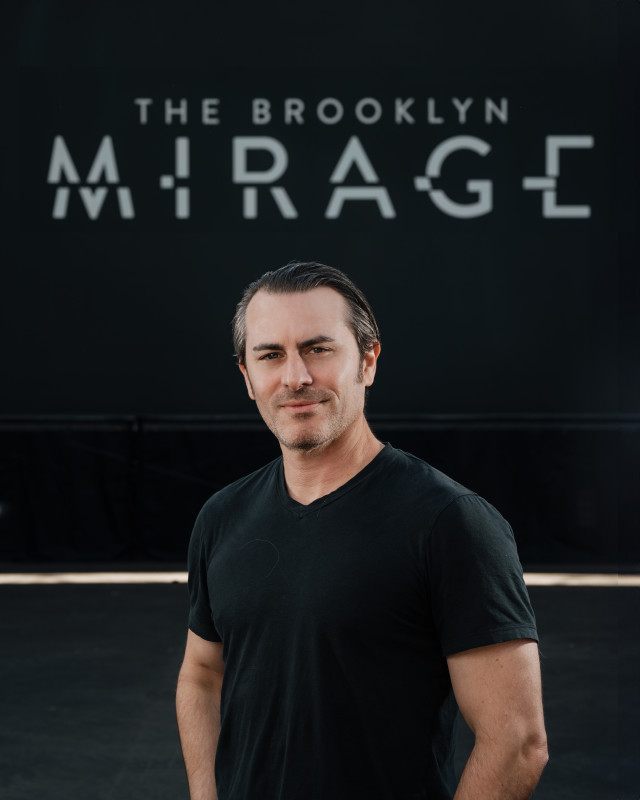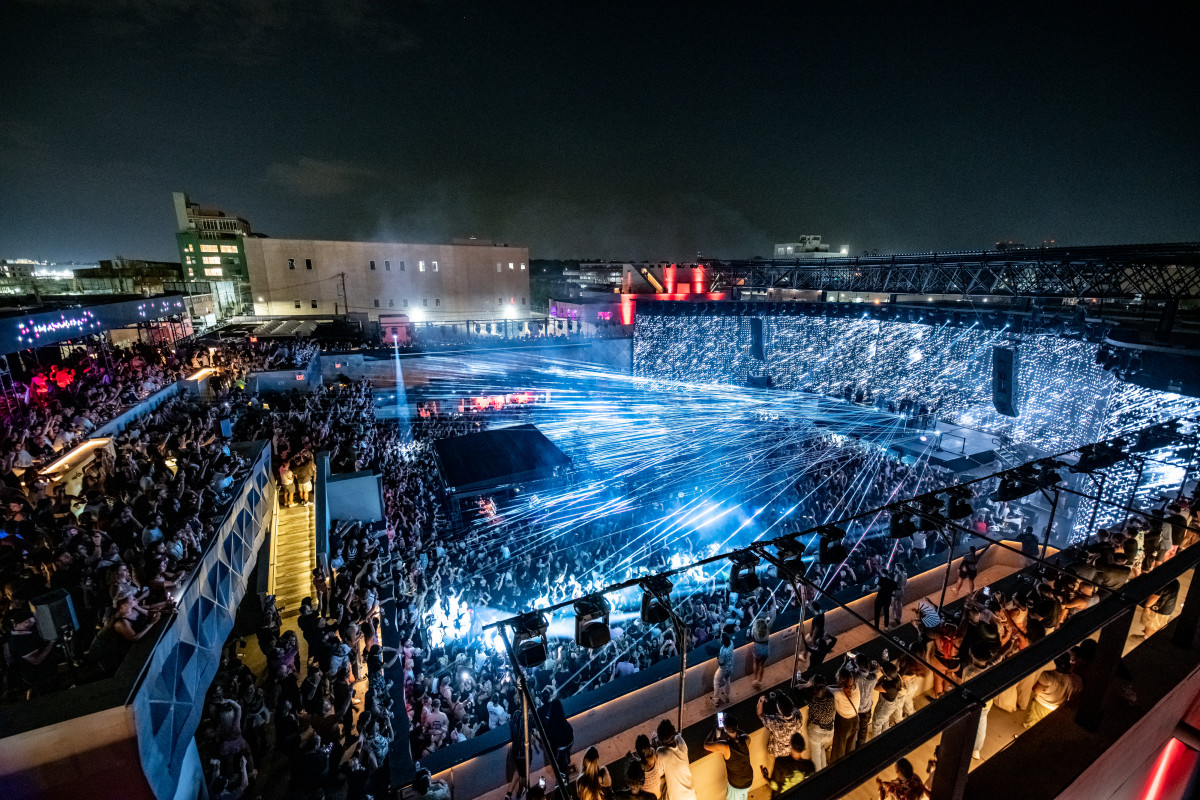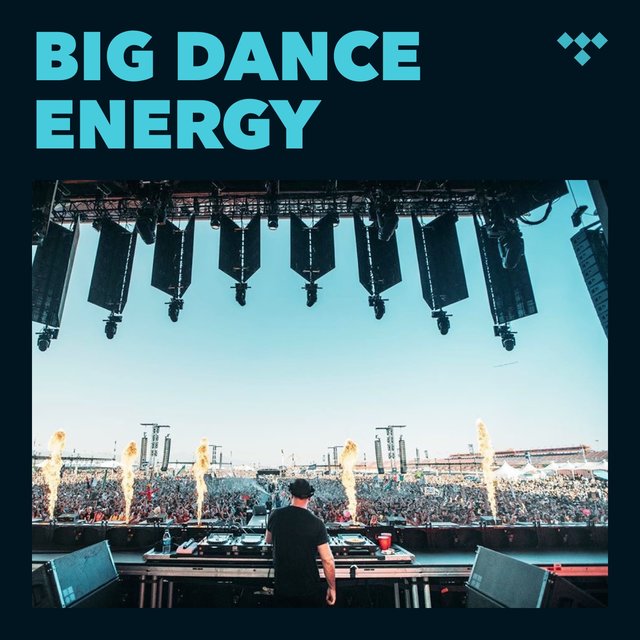“Trust, Transparency and Accountability”: How Brooklyn Mirage’s New CEO Is Reshaping New York Venue

Brooklyn Mirage is both a paradise and a paradox.
Unparalleled programming and production intertwined with some serious pitfalls have created a perception of the storied EDM venue that seesaws between excellence and dysfunction. But with new leadership at the helm, 2025 could be a turning point.
First, the good. There’s no denying that the New York venue’s curation is top-notch. Dance music’s biggest artists—like Carl Cox, John Summit, Keinemusik, Black Coffee and Swedish House Mafia—often take the stage at Brooklyn Mirage. Record labels and brands with thriving communities—like Anjunadeep, Boiler Room, Mayan Warrior and All Day I Dream—curate shows there too. And rewarding the truest of revelers, dusk-to-dawn shows are hosted regularly, spurring sunrise sets in a sprawling setting that few stateside venues can pull off.
Plus, the venue’s production rivals festival stages. The sound system is stellar and Brooklyn Mirage’s gargantuan, 300-foot, 14K LED video wall is a spectacle.
But it’s not all sunshine and rainbows. Reports in recent years of operational mismanagement and safety concerns have soured the venue’s relationship with longstanding patrons. Social media is rampant with accounts of aggressive security, oversold shows and confiscation of Narcan, a life-saving medication that’s widely considered a critical harm reduction tool in the dance music community. A pair of mysterious deaths near Brooklyn Mirage in 2023 also cast a long shadow over the venue’s reputation, fueling calls for greater accountability and improved safety measures.
Josh Wyatt, the new CEO of Avant Gardner—the multi-venue complex that houses Brooklyn Mirage—is determined to tackle the venue’s most pressing concerns with meaningful change.
"Trust, transparency and accountability are the three key words in my moral compass," Wyatt tells EDM.com in a sweeping interview. "I have pushed those three words down into the fiber of the company to ensure that employees understand that these are key expectations I have as CEO."
It’s natural to be skeptical about lofty statements. "So what does this all mean in practice?" Wyatt himself segues, expanding on several concrete ways to rebuild trust with patrons who may have had negative experiences at Brooklyn Mirage in the past.
“We’ve heard feedback that the way security interacts with fans is too draconian,” he says. “I think that comes down to training and a commitment to change the company culture.”
To address this feedback, Wyatt plans to expand Brooklyn Mirage’s guest ambassador program and have all staff undergo hospitality training. This community-based approach to guest relations should translate to more pleasant experiences with staff once Brooklyn Mirage reopens later this year, he says.
"It's one thing to understand the technical details of the venue, but it's another thing to actually be trained with a culture of hospitality: welcoming people, really wanting to make sure that guests feel safe, feel heard and are given the opportunity to have a great time."

Apart from hospitality training, Wyatt mentions that all staff has already undergone training on harm reduction, overdose prevention, anti-harassment, sexual violence prevention, CPR/AED, bystander intervention and Narcan administration. Regarding past reports of staff confiscating Narcan, he affirms that the medicine is permitted into the venue and that all staff has been made aware of the policy. However, Wyatt stresses that patrons in need of help should seek out trained medical professionals who will be onsite at every show.
But it’s not just the way in which staff members interact with fans that has proven to be an albatross for Brooklyn Mirage—it’s also the way they present themselves.
"When someone comes in and sees security in quasi-military gear, it certainly sends a message, and that message is definitely not one of openness and positivity,” Wyatt admits. "Our goal would be similar to the U.S. Secret Service or Federal Air Marshals. There's a lot of stuff that happens behind the scenes that you never see, yet it’s safe for politicians to give a speech, and it’s also safe for us to fly."
Wyatt emphasizes there’s nuance in prioritizing security while maintaining a welcoming atmosphere. “It’s almost like being a swan. We’re paddling furiously underneath, but all you should see is a hospitality-forward company.”
When it comes to safety outside the venue’s walls, Brooklyn Mirage is investing in improvements, Wyatt says, to “lighting, fencing, perimeter sight lines, way-finding, signage to subways and rideshare, and cell phone service—through finally getting the right permits and licenses to install more cell phone towers.”
These changes should make a big difference since the streets surrounding Brooklyn Mirage are relatively quiet with limited residential presence. The immediate vicinity comprises several blocks of warehouses, factories and commercial buildings with sparse street lighting and low pedestrian traffic.
The venue will also continue working with both NYPD and private security to patrol the surrounding neighborhood after shows end, policing unlicensed drivers from picking up inebriated patrons. Though Wyatt states that there are legal and technical limits to what they can do once someone exits the venue.
“It’s more of a neighborhood or community problem,” he adds. “I would challenge everyone around us as neighbors to work together collectively—whether it's other nightlife operators in the area, property owners or politicians—we need to work together to make the neighborhood a more welcoming place."
Apart from hospitality and safety, capacity is one of the biggest criticisms of Brooklyn Mirage. Patrons often report that shows feel overcrowded and oversold, sometimes raising concerns about potential fire hazards.
Wyatt views capacity across two axes: technical (the layout of the dancefloor) and functional (the number of people on the dancefloor).
On the technical front, “there will be no barriers, columns or production tents on the dancefloor,” Wyatt says. “That's a very simple but profound fix that we think will improve crowd flow.”
If you’ve been to Brooklyn Mirage, you’ve probably experienced bottlenecks around the steel boundaries of the large production tent at the back of the dancefloor or around the towering, obstructive columns spread across the dancefloor. Eliminating these structures will open up significantly more space for dancing. Wyatt also promises new spaces with direct sight lines to the stage.

Bryan Kwon
In fact, holding true to its name, Brooklyn Mirage as we know it is going to disappear. The space is being rebuilt from the ground up, and the rebuild will result in a larger dancefloor and dynamic production design.
“We can't fully disclose what we're doing, but I can tell you that when you walk into Brooklyn Mirage for the first time, you're going to see a set design that will blow you away,” Wyatt emphasizes. “Then when you come back two weeks or two months later, it's going to look totally different. The type of technology that we're designing to be able to allow us to do that is bespoke and has never been done before—I think it’s pretty mind-blowing.”
Love it or hate it, Brooklyn Mirage will sunset its signature video wall. Wyatt favors flexibility in stage design and thinks the video wall creates a fixed point of view that restricts optionality. “We’ve been flirting with new production elements ahead of the 2025 Mirage season,” he says. “One of our first tests was this sort of 360° pulsating visual rig that we put up for Rampa at the Great Hall in December.”
"The second area of technical flow is how people get in and out of the venue and how people get between the different sections within the venue,” Wyatt continues. “With the new venue design, we've addressed all pressure points to make the guest experience a lot easier and more intuitive in terms of flowing through the venue. Because it's not just about dancing, it's also about the ability to get to the exits, bars and bathrooms quickly."
Aside from streamlined flow, Wyatt says the revamped Brooklyn Mirage will also have “new areas where people can peel out of the main dancefloor, hang out and have much better experiences and side quests around the entire campus.” If you’ve ever been to the venue and found yourself stumped by an aggressive security guard telling you that the elevated floors are closed off, Wyatt wants to fix that. He acknowledges that area restrictions were not always clearly communicated by staff in the past, but enhanced signage and hospitality training will change that.

When it comes to the burning question of whether Brooklyn Mirage oversells shows, Wyatt says he wants to be both “transparent and a little combative” in his response.
“I've seen the numbers. In the past for 2023 and before, I think there was overselling,” he reveals. “In 2024, there was a cap on the number of tickets that were sold. I have all the data and other than maybe one or two shows, there was never overselling of tickets. So I acknowledge that customer feedback that it's been overcrowded, but since I came on board, I said whatever the venue capacity is, you cannot sell one ticket beyond that.”
“Perception is everything,” he adds. “We have to communicate effectively with all the constituents that touch the company—vendors, employees, neighbors, politicians and of course fans. We’ve been putting out communications in writing, on social media, and in person to tell people what we are going to do, show people that we've listened to their feedback and to provide a solution to any type of challenge that people have faced.”
If you scroll through Brooklyn Mirage’s Instagram page, you’ll notice a drastic difference in how they are engaging with fans. Any criticism is met with openness and positivity. Before Wyatt joined the company, responses to comments on social media were non-existent.
“We need to have an active dialogue where you recognize a customer has had either a positive experience or a negative experience, and comment on that to either give reinforcement to the positive moment or a service path to recovering from a negative moment,” Wyatt explains. “The team has been incentivized to be very engaged on social media.”
Alongside Net Promoter Score, a standardized methodology for benchmarking and capturing feedback in the hospitality and nightlife industry, Brooklyn Mirage will collate customer sentiment on social media to measure the success of its new policies on improving the guest experience.
Wyatt’s focus on guest satisfaction stems from over two decades of experience in the hospitality industry.
“I've always been deeply motivated and inspired by creative companies that have a meaningful community,” he says. “Brands that can define, support and grow a community are brands that typically stand the test of time. They may go through ups and downs, but the ones I think that survive and eventually thrive over years and more importantly decades are ones that understand their community and know how to foster a long-term view of that community. I've always aligned myself to companies that follow that mantra.”
Wyatt’s most recent tenure as CEO of social club NeueHouse and its sister company, the photography museum Fotografiska, was rooted in community-building. NeuHouse’s cultural programming (artist talks, film screenings, creator dinners), interior design (communal workspaces and lounges) and membership were designed to foster a vibrant community of creators, inventors and thought leaders.
His past experiences as president of Equinox Hotels and co-founder of Generator Hostels share similar community underpinnings. “When I started Generator—back when the word Millennial was the equivalent of what Gen Z is today—no one understood the concept of bringing together high-level interior design, cultural curation and music into the budget travel industry,” he says. “We did that with Generator.”
Part of Wyatt’s efforts with Generator also included an early discovery of now-global music broadcasting platform Boiler Room. “We were the first to ever bring Boiler Room on the road,” he recalls. “We found them in a garage in Shoreditch back in 2008 and thought that they were incredible and that they should travel. So we were the first ones to ever actually stream a touring Boiler Room. It happened in Berlin, back in 2010, and was the first touch point I had seeing the power of electronic music with a communal, tribal vibe—people coming together to experience a profound sense of joy and emotion.”
To this day, Wyatt still champions rising talent, pointing to Keinemusik supporting Desiree and Black Coffee working with Shimza as great examples. In turn, he aims to use Brooklyn Mirage as a lever where established acts can amplify emerging talents, an opportunity he called "one of the best parts about this job."
“One of the things that I'm intrigued by is this concept of established artists or platforms that are also really, really good at developing talent underneath them and elevating that talent, whether it's directly on a label or just as friends.”
Brooklyn Mirage kicks off its 2025 season on May 1st. You can find out more via the venue's website.






















